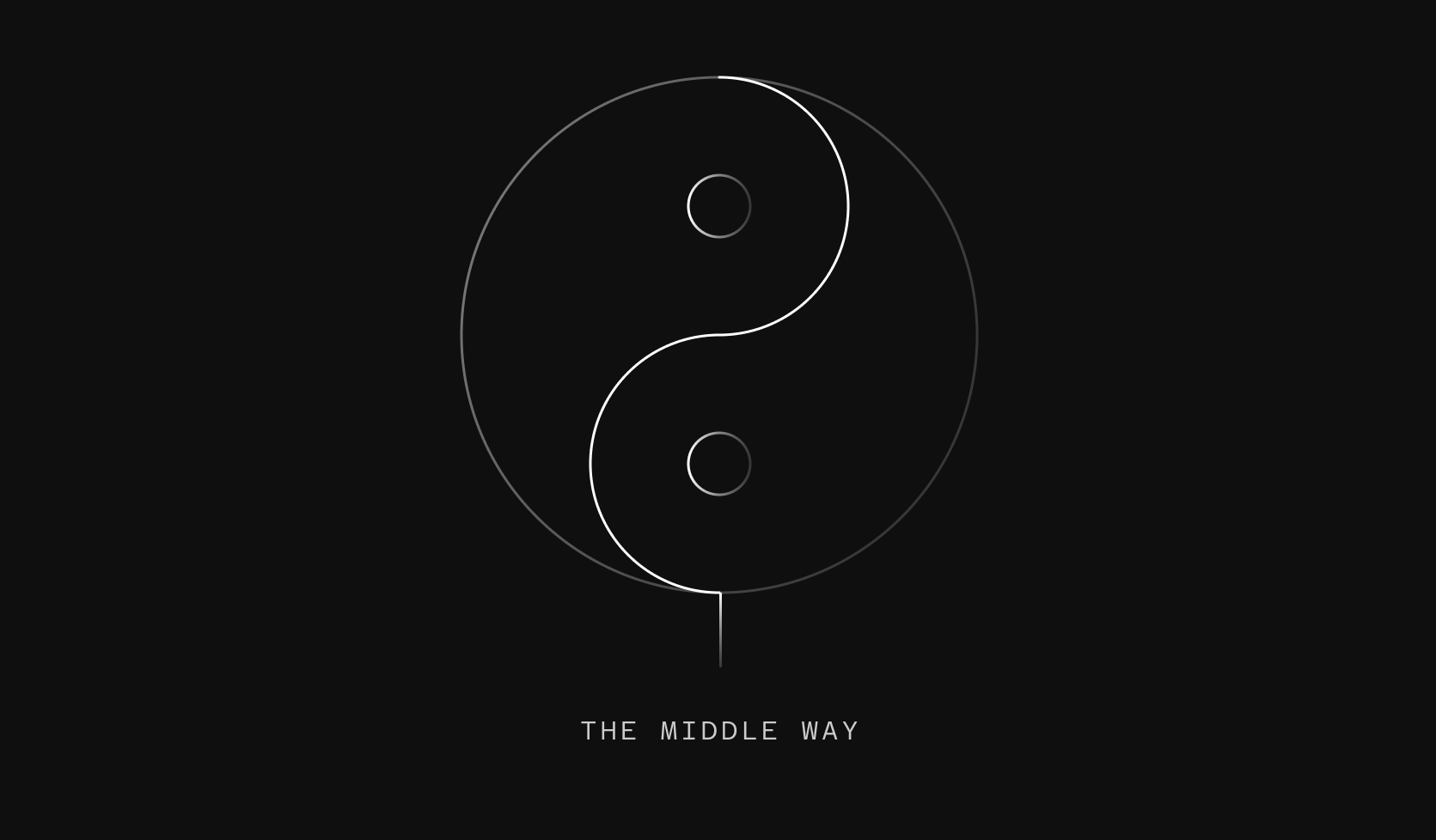On polarities
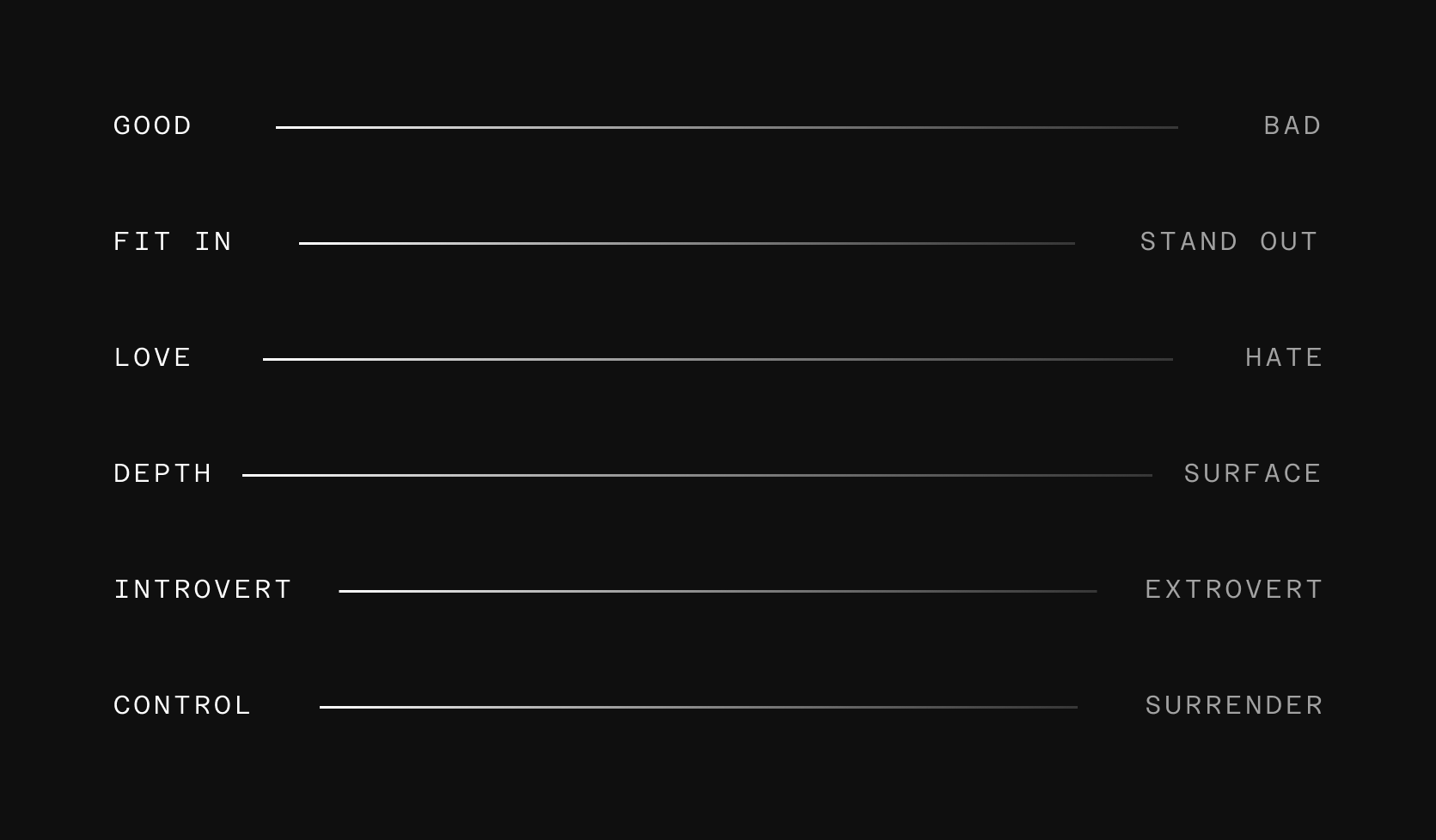
I've been thinking about polarities. How they occur in everyday life and what they represent. For example, logic versus creativity, depth versus surface, the desire to stand out versus the deep need to fit in.
The wave and the ocean analogy
I've found it useful to consider the Buddhist perspective, that polarities are concepts and creations of the mind; put another way, if a wave cannot be separated from the ocean, why would and should we separate good from bad?

This might feel an uncomfortable thought exercise at first. We might then ask, is it not strange to even consider good and bad a polarity at all? In the same way that we've come to accept waves must be part of the ocean.
Your first reaction might be to say, nonsense, there are good people and bad people. And whilst that may very well be true from the path less travelled, another way of looking at this may be through the lens of these boundaries blurring.
The breakup that once felt like a failure (bad) becomes an event for growth or wisdom (good) — it's true then that even once we label something as good it may cause us harm or create an altered state of importance or arrogance if we're not careful.
We have no other choice then, but to find another way.
A different way of thinking
It's likely you may never have considered a third word when you think of polarities. An alternate reality of sorts. This may also be known as non duality.
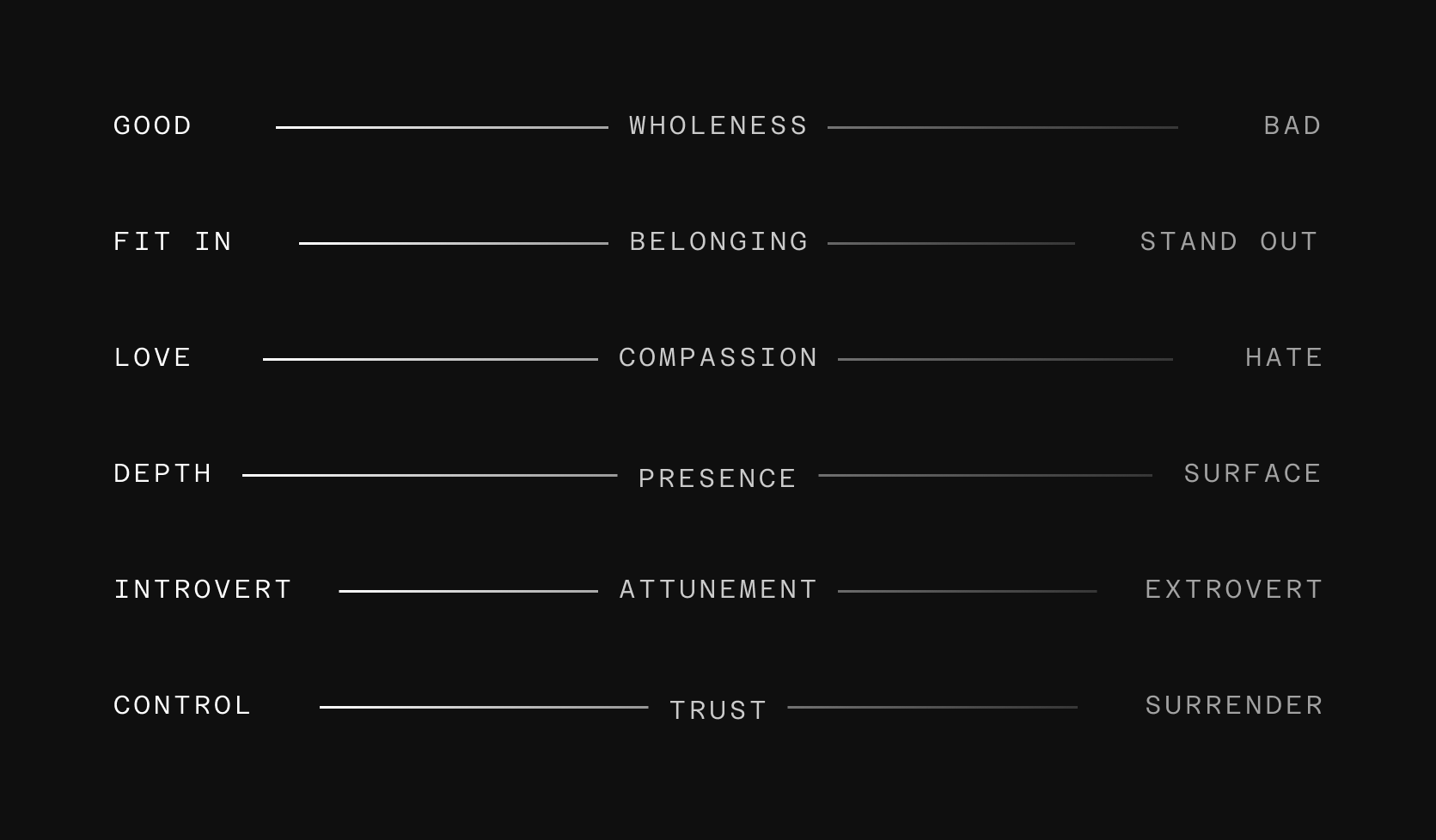
As I write this, I’m in a coffee shop. One woman sits quietly, knitting alone, immersed in her own rhythm. Just beside her, two others are laughing, animated, electric in each other’s company.
Both would seem to occupy different polarities of experience: solitude and connection, stillness and stimulation, introspection and expression.
But look closer. The woman knitting isn’t isolated, she’s deeply present, content in her own company. The laughing pair aren’t merely distracted, they’re alive in the moment, nourishing something shared.
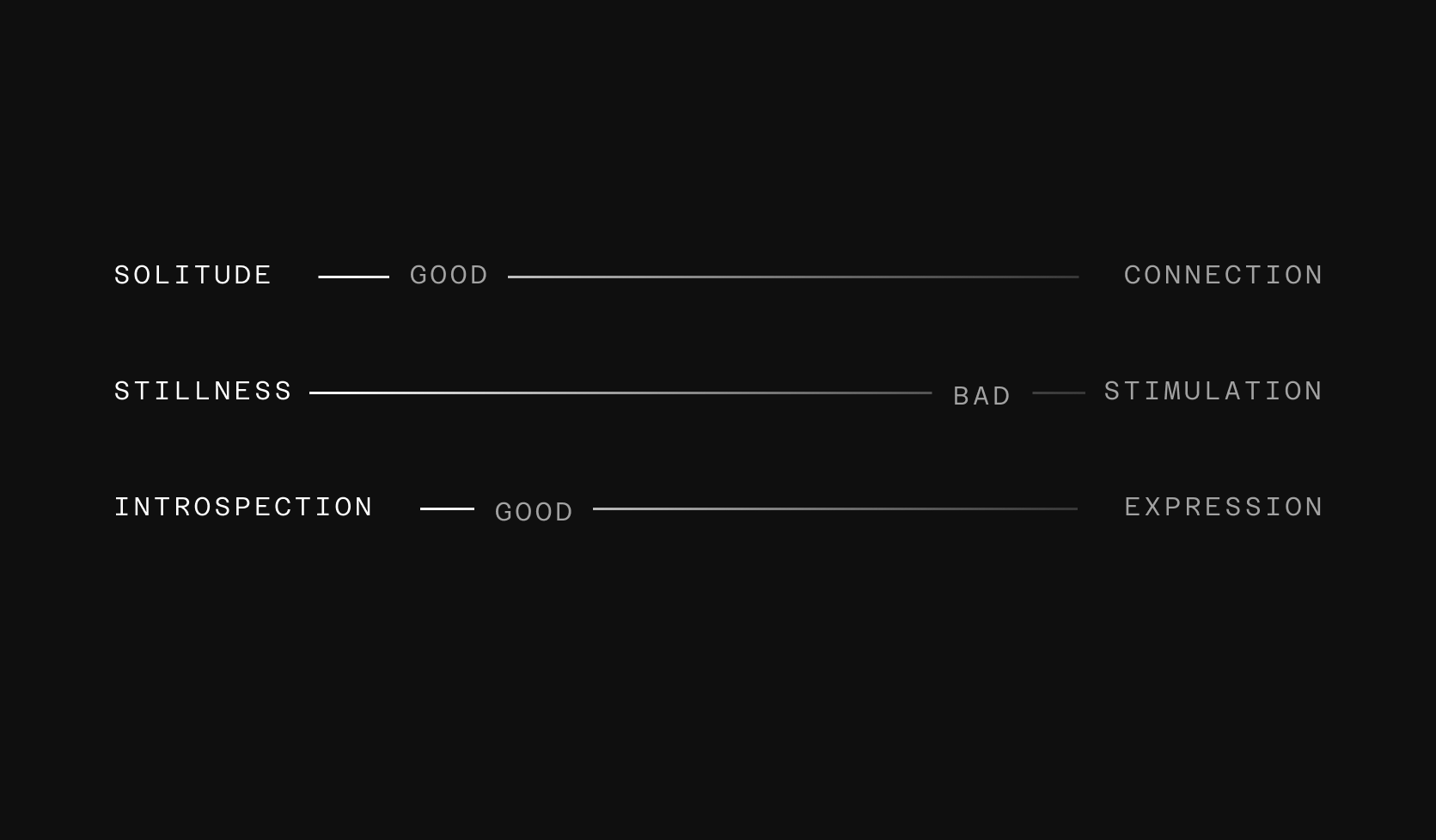 We must not then, assign value or "polarities" to our choice of words. Neither is “better.” Neither is “right.” Each reflects a different expression of presence.
We must not then, assign value or "polarities" to our choice of words. Neither is “better.” Neither is “right.” Each reflects a different expression of presence.
The problem then, is not with the polarities themselves but our affliction with them, or put another way, how we associate or assign meaning to those words and/or what feelings we choose to give them.
We're taught to place ourselves into deterministic polarities and assume one is right and one is wrong. It may be useful to think of this as labelling, I am creative, I'm caring — a dangerous and perilous game. What then happens when we find ourselves in one polarity for too long?
A fear mindset
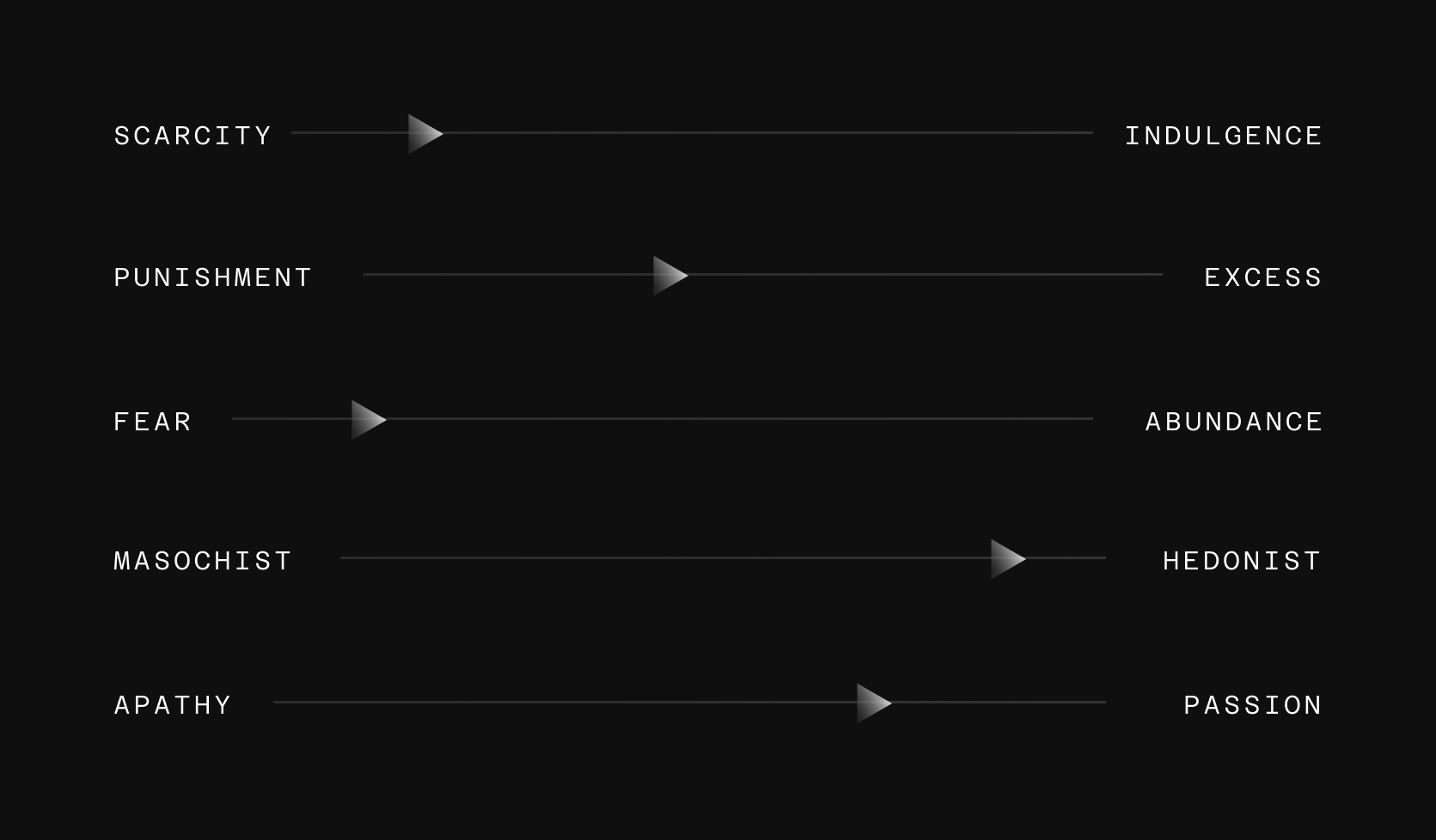
You can probably relate to fear, what you may not be able to do straight away is relate to where it comes from within you and why. In the above example, fear may drive us to blindly seek passion or excess for say, the fear in not having enough. Why? As Scott Jeffrey puts it, we have fear of the following:
-
Fear of boredom — being stimulated to the point we cannot live without the stimulation
-
Fear of laziness — how do we become more comfortable with laziness?
-
Fear of meaninglessness — what's our purpose, why do we wake up each day?
How do we overcome fear, and find a middle ground in moderation, of enough, neither abundance nor scarcity?
Embracing a middle way
You've probably found that neither starving yourself nor indulging have created any greater freedom, happiness or contentment. So then, we can fairly assume a greater level of awareness does indeed help us to create more balance, or moderation.
The “middle way” isn’t a tightrope between the knitter’s quiet and the friends’ laughter; it’s the spacious awareness that can sip its coffee and belong equally to each, the solitude and connection, logic and creativity, control and surrender held without needing to divide or prefer.
